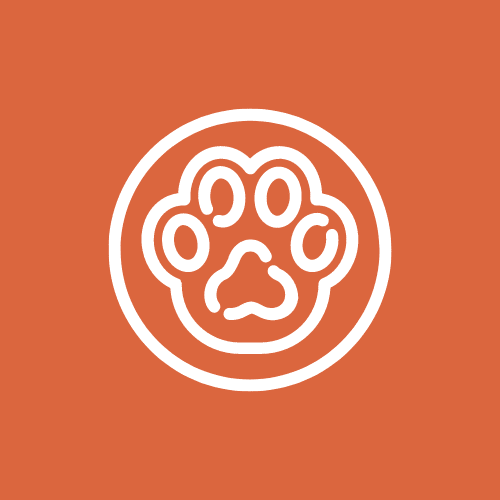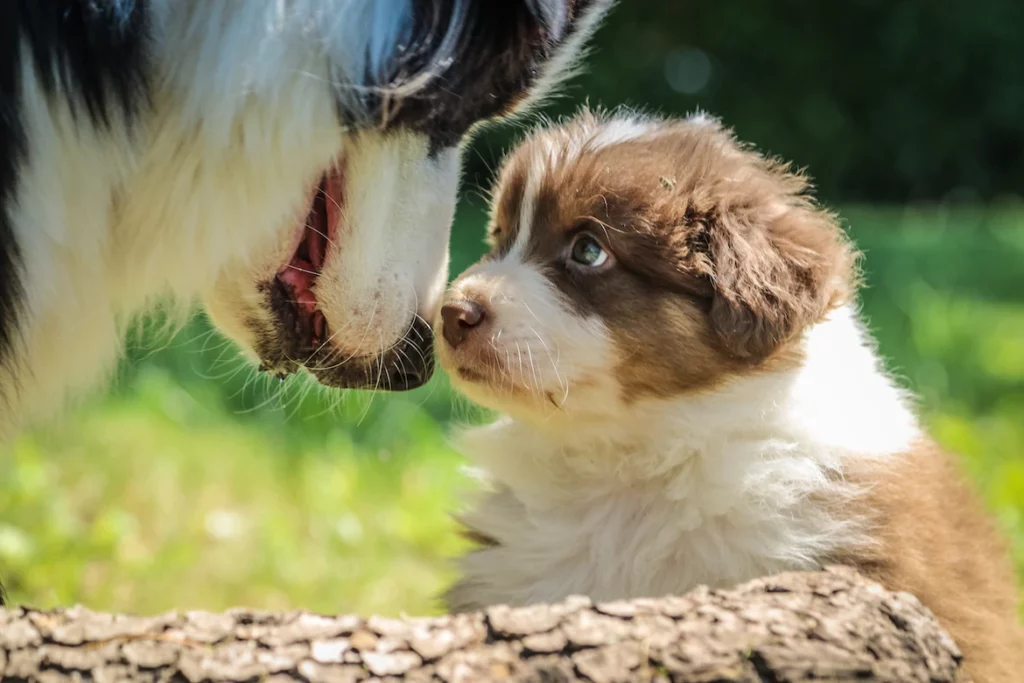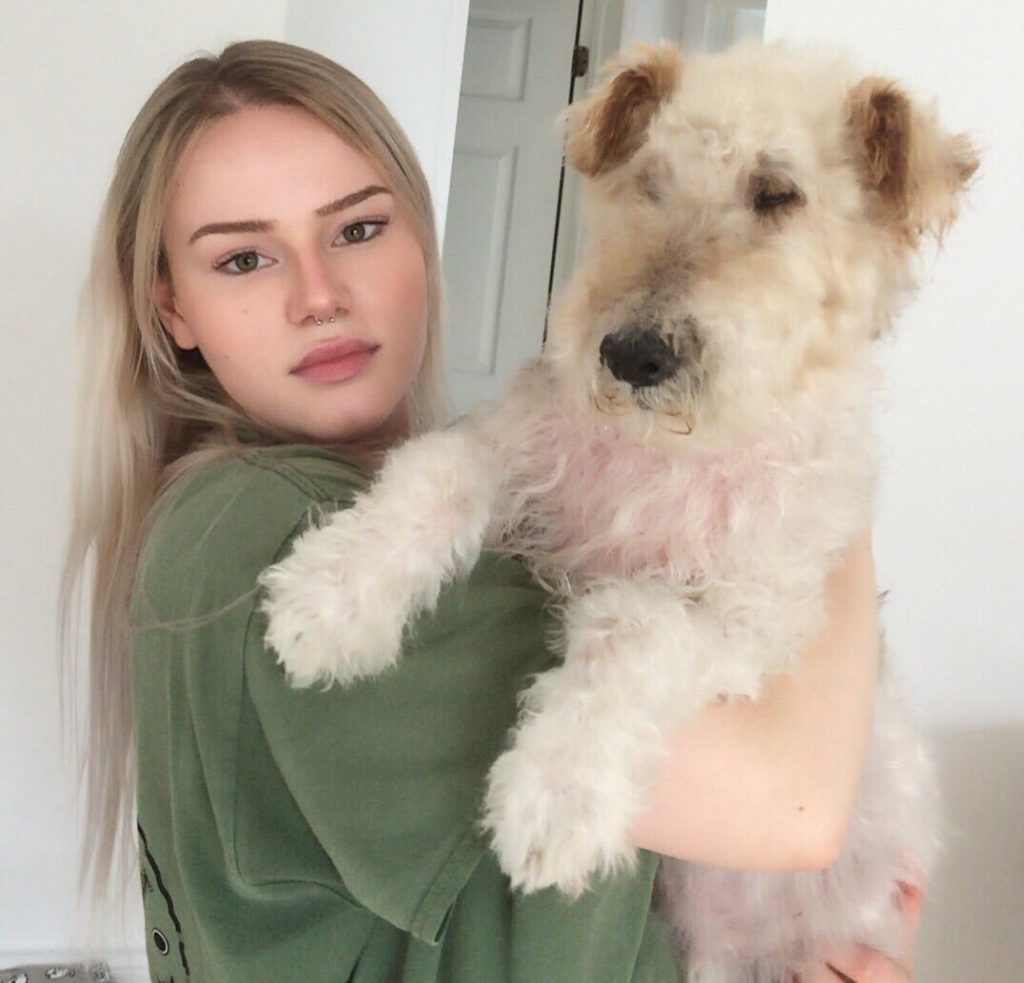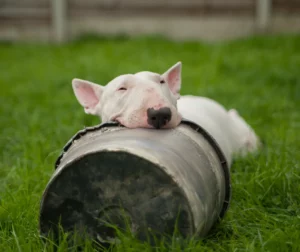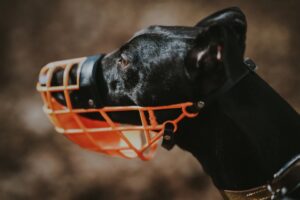Diarrhea in a lactating dog is a major concern for owners of nursing dogs because it can affect the health of the mother and her puppies.
Understanding the underlying causes of diarrhea in this specific situation and following the appropriate advice is essential to ensure the dog’s well-being and the pups’ health.
Why might a female dog have diarrhea after giving birth?
– Food
Diarrhea in a lactating dog can have various origins. One of the common causes is diet. Sudden changes in his diet can upset his digestive system. In addition, poor quality food or inappropriate table scraps can lead to gastrointestinal disorders.
– Stress
Stress is another common source of diarrhea. The lactating female dog may be subject to emotional stress due to giving birth, the presence of new puppies, or other environmental factors. Stress can negatively influence your digestive system.
– Infection
Infections are a major concern. Bacteria, viruses and intestinal parasites can cause diarrhea. Infections can be acquired through food, water or contact with sick animals.
– Hormonal imbalance
A lactating female dog may also be vulnerable to hormonal disorders. Hormonal fluctuations that occur during this time can disrupt the normal functioning of one’s gut.
– Allergies
Certain foods or environmental substances can trigger allergic reactions in the mother, causing gastrointestinal upset. If your dog shows other signs of allergies, such as red, itchy skin, ear infections, vomiting, flatulence, or inflammation, it is important to talk to your veterinarian about allergy testing and treatment options. Allergies can be caused by food hypersensitivity or atopic dermatitis (allergy to environmental substances).
It is essential to consult a veterinarian if diarrhea persists. Complications can quickly affect the dog’s health and milk production, which could harm the puppies. The veterinarian will be able to identify the underlying cause of the diarrhea and recommend the appropriate treatment, including medication, a change in diet, or adjustments to reduce stress.
It is crucial to ensure the health of the lactating female dog, as it has a direct impact on the growth and well-being of her puppies.
Could Eating Placenta After Giving Birth be the Culprit?
One potential factor that shouldn’t be overlooked is the dog’s consumption of placenta after giving birth. While it may seem like a natural instinct for a mother dog to consume the placenta, as it provides essential nutrients for her body and the milk of her newborns, excessive consumption can lead to digestive issues.
If a nursing dog has recently given birth and is experiencing diarrhea, it’s crucial to consider the possibility that the consumption of too many placentas may be the underlying cause. Excessive consumption can overwhelm the digestive system and result in loose stools. Monitoring the dog’s behavior and ensuring moderation in placenta consumption can help prevent and alleviate diarrhea in these cases.
Should You Fast a Nursing Dog with Diarrhea?
When a lactating dog suffers from diarrhea, it is often recommended to temporarily withhold food for a period of 6 to 12 hours. This allows the digestive system to rest and recover.
However, it is essential to consult a veterinarian before making this decision, as each situation is unique. The veterinarian will be able to assess the severity of the diarrhea, the general condition of the female dog and provide specific recommendations. In some cases, it may be advisable to maintain a light and easily digestible diet, such as boiled chicken and rice, to support the dog while sparing her digestive system. The key is to carefully monitor the dog, provide her with adequate hydration, and follow veterinary advice to ensure her health and that of her puppies.
Can Antibiotics Cause Diarrhea in Nursing Dogs?
When a nursing dog is prescribed antibiotics to treat an infection, it can disrupt the natural balance of bacteria in the gut, leading to gastrointestinal disturbances such as diarrhea. Antibiotics not only target harmful bacteria but also affect beneficial bacteria in the gut, which play a crucial role in digestion and maintaining a healthy gut microbiome.
If a nursing dog experiences diarrhea while taking antibiotics, it is important to inform the veterinarian. They may recommend adjusting the dosage, switching to a different antibiotic, or providing additional supportive care to help alleviate the symptoms and restore the balance of gut bacteria.
What Can You Give a Nursing Dog for Diarrhea?
When a nursing dog suffers from diarrhea, it is recommended to feed her a light and easily digestible diet.
Here is a list of foods you can give to dogs with diarrhea:
- Cooked, skinless chicken or lean ground turkey
- White rice
- Plain, unsweetened yogurt
- Pumpkin puree (in small amounts)
- Boiled, mashed sweet potatoes
- Boiled, shredded carrots
- Boiled, boneless fish (such as cod or tilapia)
- Low-fat cottage cheese
- Boiled, mashed pumpkin or squash
Remember to introduce these foods gradually and monitor your dog’s response. It’s essential to consult with a veterinarian for specific dietary recommendations based on your dog’s individual needs and condition.
How to Restore the Bacterial Community in Your Dog’s Gut Microbiome?
Diarrhea can disrupt the balance of bacteria in a dog’s gut microbiome, leading to digestive issues. To restore the bacterial community, probiotics can be beneficial. Probiotics are supplements that contain beneficial bacteria, such as lactobacillus and bifidobacterium, which help promote a healthy gut.
Consult your veterinarian to determine the appropriate probiotic supplement and dosage for your nursing dog. Here are some strategies to help maintain good digestive health for your dog:
– Probiotics
Probiotics are beneficial bacteria that can be administered as supplements or found in certain foods. These can help replenish and balance the gut microbiome.
– Prebiotics
Prebiotics are dietary fibers that act as food for the beneficial bacteria in the gut. They can help promote the growth of these bacteria and enhance their effectiveness. Foods rich in prebiotics include certain fruits and vegetables like bananas, apples, asparagus, and sweet potatoes.
– Fermented Foods
Introducing fermented foods into your dog’s diet can provide a natural source of beneficial bacteria. Examples include plain, unsweetened yogurt and kefir (a fermented milk product). Make sure these foods are safe for dogs and introduce them gradually.
– Fiber-Rich Foods
Including fiber in your dog’s diet can support a healthy gut. Foods like pumpkin, cooked vegetables, and psyllium husk can provide soluble and insoluble fiber, promoting regular bowel movements and supporting the growth of beneficial bacteria.
– Balanced Diet
A well-balanced and high-quality diet can contribute to a healthy gut microbiome. Ensure your dog’s diet includes appropriate amounts of protein, healthy fats, and essential nutrients to support overall digestive health.
– Minimize Stress
Stress can negatively impact the gut microbiome. Minimizing stressors in your dog’s environment, providing a calm and consistent routine, and offering mental and physical stimulation can help maintain a healthy gut.
Conclusion
It is important to note that while the information provided in this article can be helpful in managing diarrhea in nursing dogs, it is not a substitute for professional veterinary advice. Every dog is unique, and what works for one may not work for another.
Remember, a healthy diet, proper hydration, and veterinary guidance are key to ensuring the well-being of your pet.
If you are interested in learning more about canine wellness, check out these articles:
